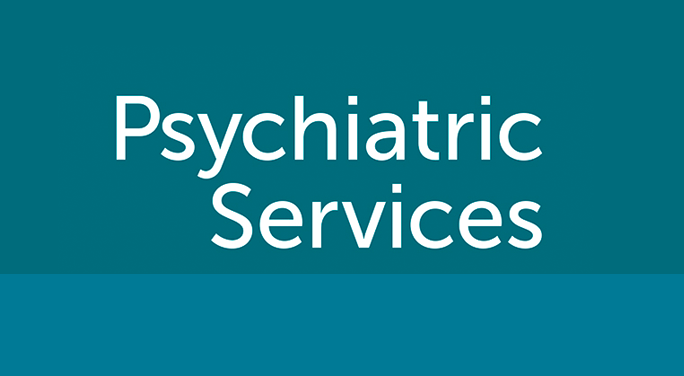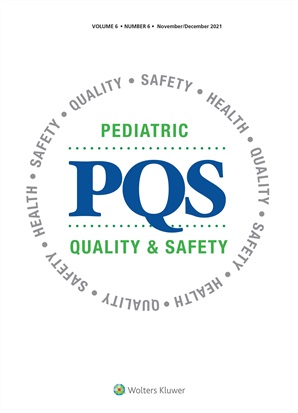Publications
-

Study Investigates Direct Care Teaching ServicesOpens in a new window
Dec 15, 2024This multi-site qualitative study explores how hospitalist clinicians optimize the presence of medical learners on direct care teaching services. Dr. Catherine Callister and colleagues interviewed clinicians at 26 academic medical centers to understand the strategies, tensions, and values that shape learner engagement on busy inpatient teams. Findings reveal how hospitalists balance patient care demands with their teaching mission, often adapting workflows, communication patterns, and supervision approaches in real time. Themes include the importance of intentional team design, alignment of roles with learner level, and the tension between clinical work and time for education in busy clinical settings. This work sheds light on the real-world complexity of clinical education in hospital medicine and offers insights to guide the design of sustainable, high-value teaching services.Opens in a new window Full story -

Clinical Pathways Programs in Children’s HospitalsOpens in a new window
Nov 13, 2024Clinical pathways translate best evidence into the local context through a structured multidisciplinary care plan. However, little is known about clinical pathway programs especially in pediatric settings. This study sought to determine the prevalence of clinical pathway programs in pediatric hospitals and describe similarities and differences. The team, led by IHQSE graduate, Dr. Leigh Anne Bakel, surveyed 81 of 111 Pediatric Research in Inpatient Settings (PRIS) network hospitals regarding the existence of a clinical pathway program, number, type, creation or revision of clinical pathways as well as other pathway program characteristics. More than half of respondents confirmed that clinical pathways were in place; however, nearly half of those programs were hindered by limited funding and an inability to measure pathway outcomes or improvements in care.Opens in a new window Full story -

Disagree to AgreeOpens in a new window
Nov 11, 2024IHQSE faculty member, Dr. Katie Raffel, along with colleague Dr. Josué Zapata, published a Leadership and Professional Development piece in Journal of Hospital Medicine, "Strategies to disagree productively: Persuasive DISNT". As providers, we often have experiences and insights that can improve how decisions are made within healthcare organizations. In expressing these perspectives, we may need to disagree. However, dissent is not always well-received. They discuss the need to: Determine value, Illustrate commitment, Show logic, Negotiate partnerships and Transform success into future impact in order to have the most success in disagreeing.Opens in a new window Full story -

Eliminating Error in Central Line Scheduling and Placement Using Quality Improvement MethodsOpens in a new window
Nov 7, 2024After observing a low but consistent rate of incorrect surgical line placement for pediatric cancer patients, IHQSE graduate Dr. Jonathan Roach and team implemented a new multi-factorial process to schedule and place surgical central lines. The intervention reduced the rate of incorrect line placement and near miss events to zero! IHQSE Faculty Dr. Tyler Anstett and Dr. Michael Tchou are coauthors of this publication in the Journal of the American College of Surgeons.Opens in a new window Full story -

Redesigning Care Delivery for the FutureOpens in a new window
Oct 31, 2024One of the greatest challenges in acute care is the ability to hire and retain nurses. With high turnover and a limited candidate pool, how do you build a highly reliable organization with fewer nurses? This advanced care setting calls for Bachelor-level nurses, but those can be hard to come by, and contract labor is expensive and unsustainable in the long term. IHQSE graduate, Stephanie Elston, MSN, and her team have built a model that optimizes support to the front-line staff, helping to relieve the disproportionate reliance on RNs.Opens in a new window Full story -

Leveraging Patient-Reported Outcome Measures to Improve Mental Health CareOpens in a new window
Oct 23, 2024Using patient-reported outcome measures to guide clinical care is associated with improved outcomes and widely regarded as a best practice in mental health. However, many systems have struggled to routinely adopt the practice. In an article in Psychiatric Services, IHQSE faculty, alumni, and members of the University of Colorado Department of Psychiatry describe how they used technology to address major barriers to using this best practice in their design and implementation of the Measurement-Assisted Care (MAC) program. In MAC, patient-reported outcome measures are automatically attached to patient eCheck-in and clinician documentation templates nudge clinicians to view and discuss the responses during visits. MAC increased the availability of patient-reported outcome measures from 5% to 60%+ of patient visits with more than 90% of clinicians reporting the information was useful.Opens in a new window Full story -

Utility of Artificial Intelligence–Generative Draft Replies to Patient MessagesOpens in a new window
Oct 14, 2024In-basket burden is frequently cited as a contributor to burnout. In a research letter published in JAMA Network Open, IHQSE graduate, Dr. Eden English, discusses her recent study of the use of large language models (LLMs) for drafting replies to patient messages within a large health system.Opens in a new window Full story -

Secure Messaging: Communication Boon or Workload Bane?Opens in a new window
Oct 2, 2024Secure messaging (SM) is becoming a common way for hospitalists to communicate, but most existing literature focuses on usage patterns and implementation science, without clear understanding of the benefits and challenges users may be encountering. IHQSE Faculty Michelle Knees, DO and team led a mixed methods study involving surveys and focus groups with hospitalists from 24 academic institutions, finding that, while SM enhances communication efficiency, it also increases multitasking, cognitive load, and alters interpersonal dynamics. The study underscores the need for clear institutional guidelines for SM use and emphasizes the importance of collaborating with frontline workers to improve communication practices.Opens in a new window Full story -

Expediting Care of Fast-track Patients through a Pediatric Emergency DepartmentOpens in a new window
Oct 1, 2024IHQSE graduate Dr. Daniel Lam is lead author on this publication in Pediatric Quality & Safety which discusses the implementation and outcomes of a fast-track pathway called "Supertrack" in a pediatric emergency department. Fast-track models decrease patient crowding in emergency departments (EDs) by redirecting low-acuity patients to an expedited care pathway. This intervention resulted in improved flow of "Supertrack" patients in addition to decreased length of stays and increased timely discharges.Opens in a new window Full story -

Expanding the Surgical Armamentarium Through Meaningful Use of the Electronic Health RecordOpens in a new window
Aug 14, 2024Electronic Health Records (EHR) have become integral to quality care delivery in many specialties. In spite of the usefulness of the these tools, surgeons have been reluctant to incorporate EHR into their toolbox. IHQSE Faculty, Sarah Tevis, MD, is corresponding author of a viewpoint article published by JAMA Surgery that calls for surgeons to engage in electronic health record innovation to improve patient and clinician experience.Opens in a new window Full story